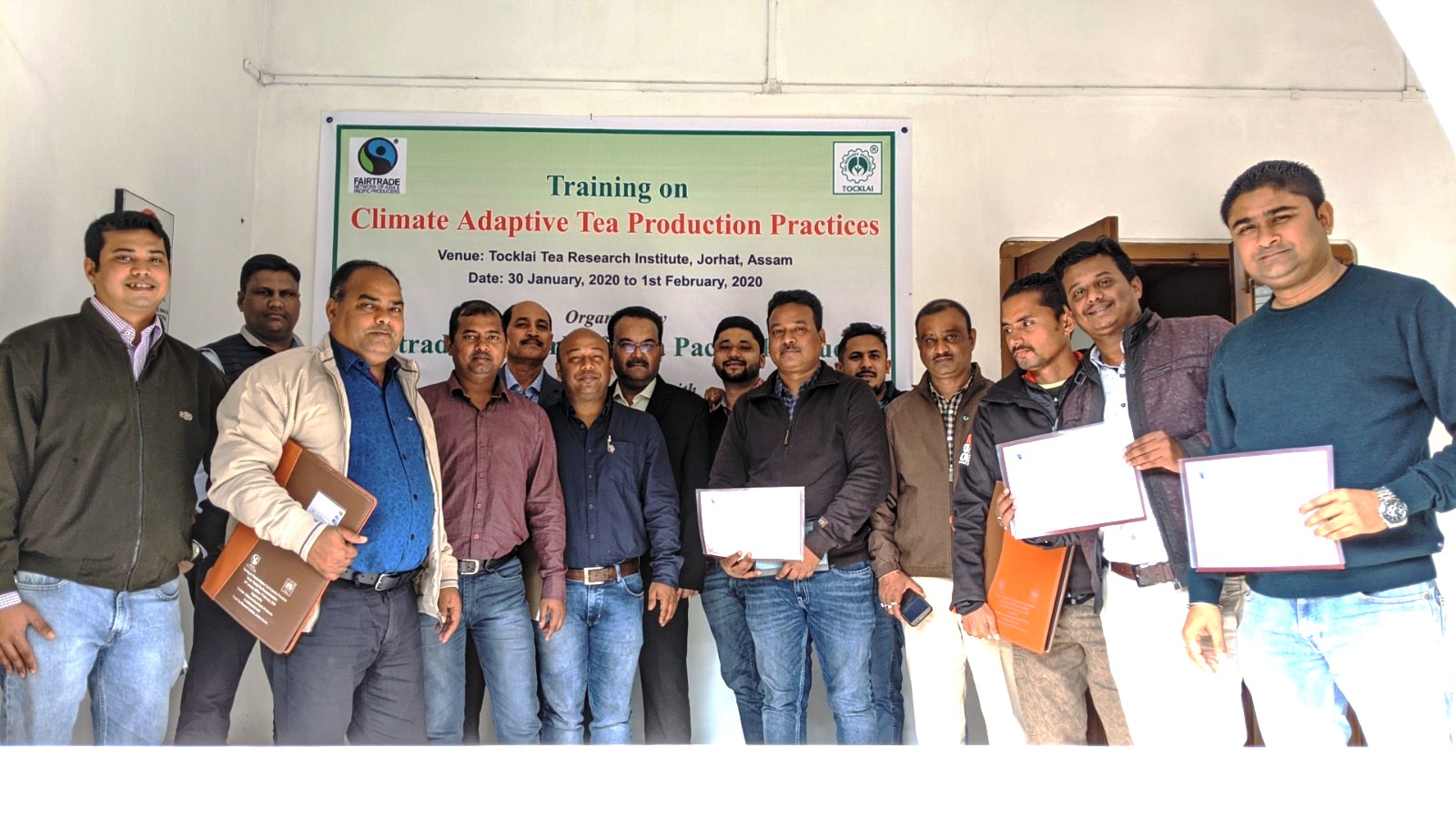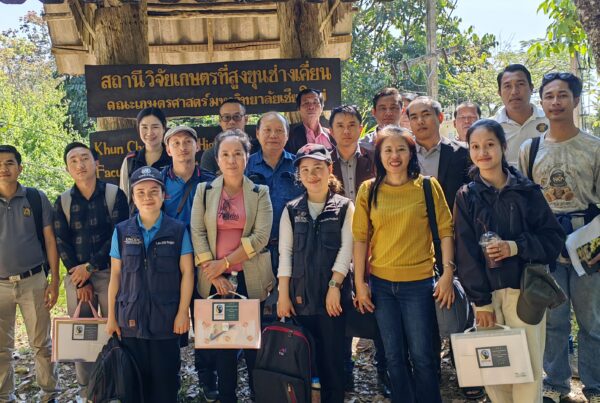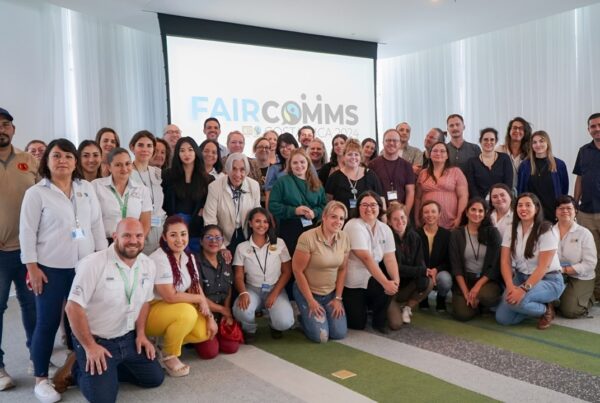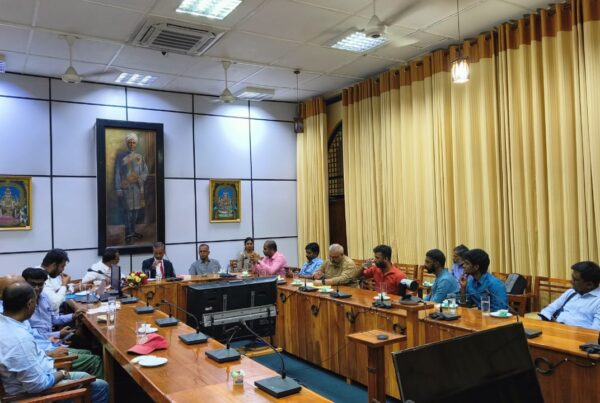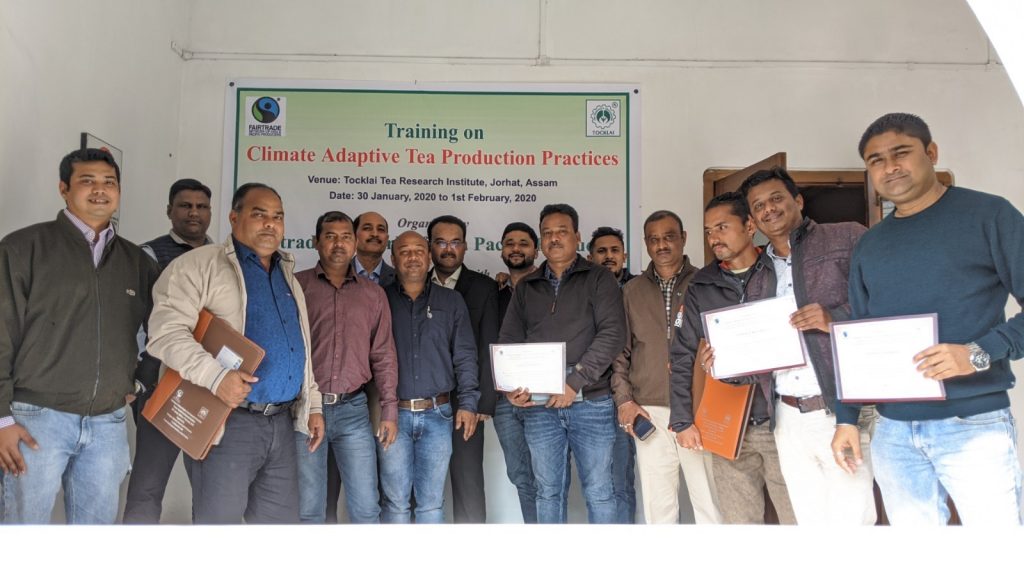
The participants were handed out Certificates on the concluding day of the training
While the sensitivity of tea plants to the environments in which they are grown forms the very essence of tea’s appeal, it also makes it highly vulnerable to the effects of climate change. Changes in temperature, drought, irregular rainfall, soil erosion, and insect pests are the major concern in the global tea production business.
India and China is the largest producer of tea in the world and about 60 to 70% of the tea in India is grown in the North-eastern region of the country. In a 2018 survey of tea-farm workers in Assam, 88% of managers of plantations and 97% of smallholders said that adverse climate conditions were a definite threat to their tea-growing operations.
As the effects of climate change become more evident, Fairtrade producers need additional technical and financial support to confront these new challenges. Beyond the benefits that Fairtrade offers to producers (Fairtrade Minimum Price, Fairtrade Premium, strong environmental standards, etc.), the system supports basic pre-conditions that are needed to implement climate change adaptation measures such as organizational development, environmental sustainability, financial stability, investment possibilities, and greater autonomy.
With an immediate measure to prepare our producers to address and mitigate the effects of climate change – Network of Asia and Pacific Producers in a joint collaboration with Tocklai Tea Research Association have started conducting an in-house training with a proposed field trip for practical training and implementation. TRAI looks after the research and development needs of the Indian tea industry and is the oldest and largest tea research institute in the world that carries out and promotes research with the principle objective of improving overall productivity and quality.
“Climate Adaptive Agricultural Practices are the next significant step for Tea Producers to help cope with the environment as well as harvest a good yield. Such trainings are need of the hour as it helps the producers to learn new agricultural ideas, convert them into practices, and reap a sustainable harvest with least damage to the environment.”– Amarjit Lahkar, NAPP Program Consultant
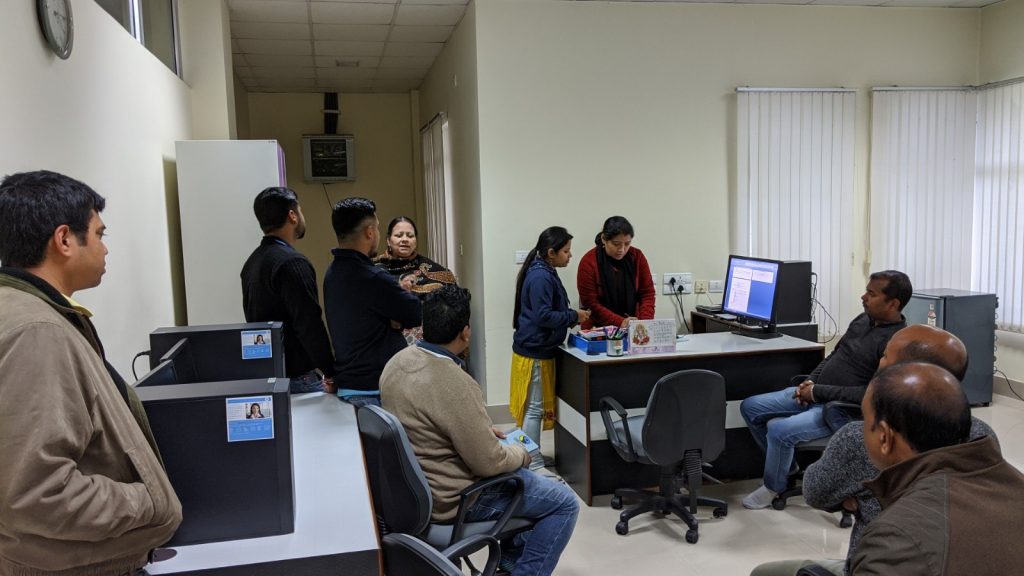
‘’The training has been very helpful in understanding the growing issues of climate-related challenges in the tea industry. It also helped us realize the solutions to tackle the present scenario and meet the needs of the future. It was very comprehensive enough to cover all areas of climate adaptive agricultural practices to be followed by tea plantations’’– Rupjeet Borkakoty; Assistant Manager- FLO ID 4590 Mcleod Russel India Ltd (Phulbari Tea Estate
Management officials from 11 FT certified Tea gardens of Assam participated in the recently organized aforesaid 03-day training. The objective was to make the producers understand Climate Change and its Implication, how they can address the challenges of Climate Change through Adaptation Strategies and good agriculture practices to counter the effect of climate change via effective soil Management, integrated pest & disease management, integrated nutrient management, abiotic Stress, and sustainability issues and rainwater harvesting.
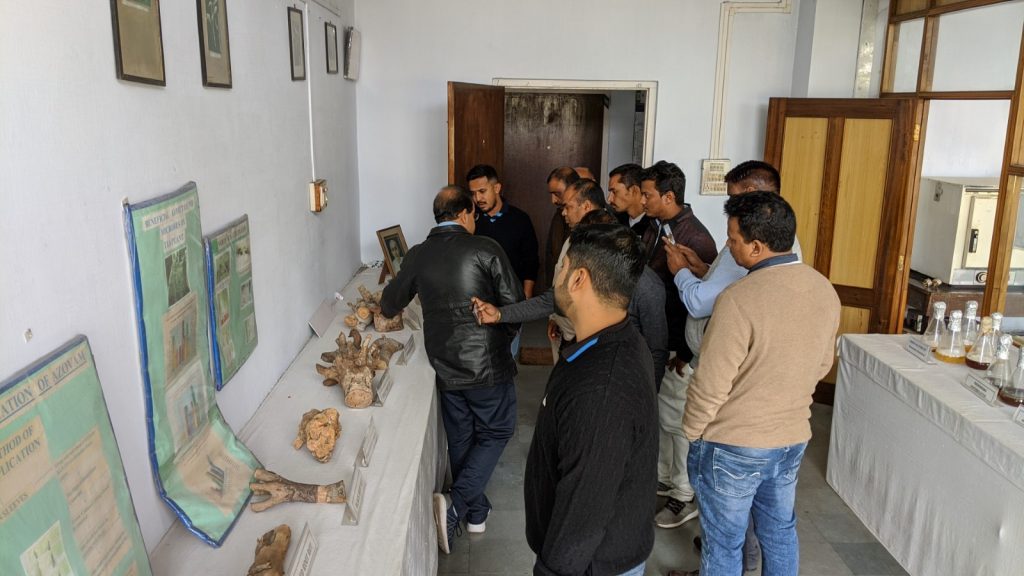 Interacting with the climate adaptation techniques for the tea garden
Interacting with the climate adaptation techniques for the tea garden
”We are thankful to Fairtrade for the detailed training on Climate Adaptive Tea Production Practices. It threw light on the importance of adopting less harmful measures for conducting our daily activities at the plantation.– Arvind Singh; Manager -FLO ID 559- Chamong Tea Exporters Pvt. Ltd
Much stress was laid by NAPP to adopt practices that have the least impact on the environment. The producers deeply felt such training are the need of the hour to make the whole agricultural system sustainable in the future. They have requested NAPP to conduct more of such training programs in the future as it enhances their knowledge and enables them to increase their production in a sustainable manner with respect to the environment.
‘’The 03 seminar/training session on climate change organized by FT with TRI was quite an enlightening experience. The sessions were interactive, informative and very useful as climate and its effects are the main food for thought globally. The various means suggested by the distinguished faculty of TRI were quite interesting and achievable. We at tea estate will definitely implement them for the greater benefit of the garden and the society at large. We look forward to such workshops organized by FT and TRI so that the industry may benefit from the same’’– Jitendra Mishra; Assistant Manager- FLO ID 2896 Jamguri Tea Estate
‘’The training has been a great experience. The sessions were very informative on climate change and its role in the tea plantation. The knowledge shared by the distinguished faculty of TRI was interesting and admirable. The advice would be very helpful and we intend to we can implement them practically in our work. I am grateful for having given such an opportunity. Such training will definitely help in bringing about a change in the way we work in the plantation, in turn, benefit the tea industry’’– Anshuman Bharadwaz; Assistant Manager -FLO ID 36593 Darjeeling Organic Estate Pvt. Ltd.
Climate change is not just an environmental problem but a great challenge and threat to development as well. Climate Adaptive Tea Production Practices provides knowledge on the science of climate change, its impact, and mitigation that will give a better understanding of the problem and the possible management measures to be evolved.


